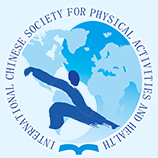Document Type
Article
Keywords
vicarious experience, physical activity self-efficacy, social modeling, social comparison
Publication Date
10-4-2022
Abstract
Purpose/Method: This qualitative case study examined through an interpretive worldview how current high school (HS) physical education (PE) teachers (n=14) implemented online experiences that could have influenced students’ interpretations of their vicarious experiences during the Covid-19 pandemic (spring/fall of 2020). The study sought to better understand teachers’ perceptions of how social modeling of PA was implemented online, how online PA experiences impacted opportunities for social comparison among the students, and what teachers’ opinions of these practices were in relation to supporting students’ PA self-efficacy. Results: The results found that the study participants differed in their opinions on the most effective ways to provide students with PA demonstrations and implement students' PA experiences during online instruction. Many of the teachers relied more on online videos to demonstrate PA, resulting in a decrease in teachers personally modeling PA themselves (theme 1). Due to the stress of the pandemic on students’ well-being, teachers and their school districts prioritized students’ social and emotional health which influenced how teachers had students participate in PA online (theme 2). This resulted in fewer PA experiences with students participating in front of each other and none of the teachers requiring students to model PA for peers online. Conclusion: This study serves as a starting point to better understand how teachers implemented online instructional practices that could have influenced students’ interpretations of their vicarious experiences during the Covid-19 pandemic. The information collected in this study can be used by current PE teachers to design future online practices.
DOI
https://doi.org/10.18122/ijpah.010302.boisestate
Recommended Citation
Murfay, Ken; Beighle, Aaron; Erwin, Heather E.; Aiello, Erin; and Pyszczynski, Sarah
(2022)
"Examining Physical Education Teaching Practices During the Covid-19 Pandemic,"
International Journal of Physical Activity and Health: Vol. 1:
Iss.
3, Article 2.
DOI: https://doi.org/10.18122/ijpah.010302.boisestate
Available at:
https://scholarworks.boisestate.edu/ijpah/vol1/iss3/2


